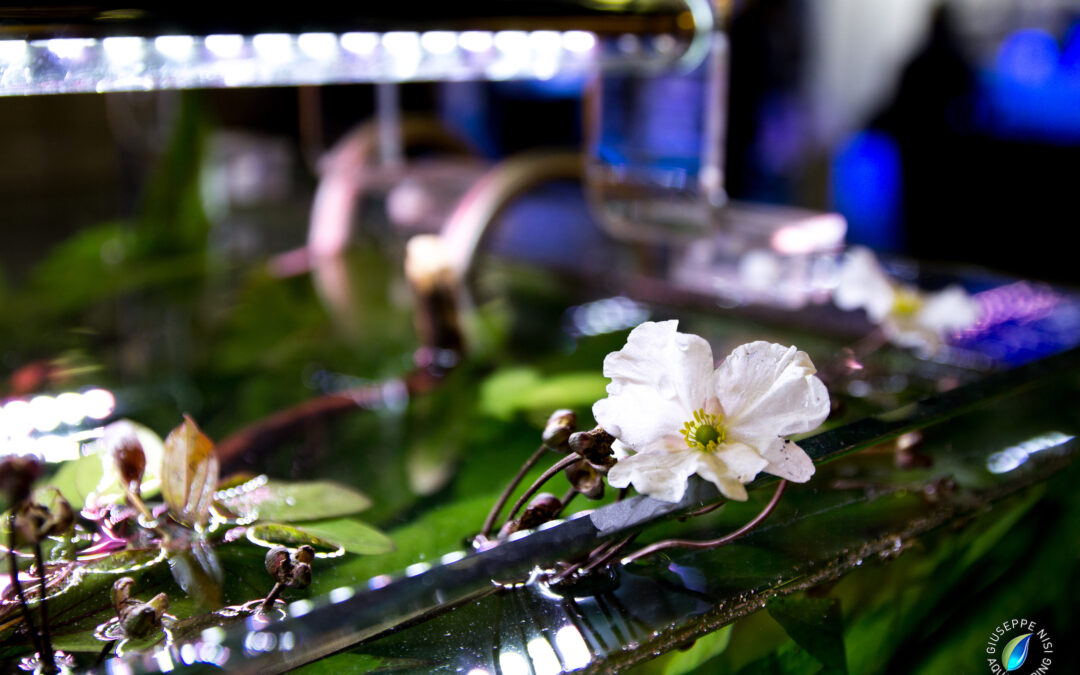Summer is approaching, bringing with it intense heat that can pose a threat to our beloved aquariums. During the summer months, it is crucial to take care of fish, plants, and invertebrates to ensure their well-being and mitigate the harmful effects of prolonged exposure to high temperatures.
Why is it essential to lower the aquarium temperature in summer?
Exposure to high temperatures can cause thermal stress, reduced respiratory capacity, and loss of appetite in fish. Moreover, because of high temperatures, plants may face the risk of inhibited photosynthesis and damage to leaves or roots, creating an environment favorable to the growth of unwanted algae. Many invertebrates are also negatively affected by high temperatures, such as freshwater shrimps and, especially, corals in marine aquariums.
How to lower the temperature in an aquarium?
Choose a good aquarium thermometer
To avoid unpleasant surprises, the first step is to carefully monitor and regulate the water temperature. We recommend using an accurate thermometer such as the Amtra Slim Thermometer or Amtra Thermometer with suction cup.
Considering that temperature sensitivity varies depending greatly on the species housed in the tanks, prompt action is necessary if temperatures exceed acceptable levels.
Use an aquarium cooling fan
One solution for lowering the aquarium temperature is the use of a cooling fan, such as the Amtra Borea 80 LED. It should be positioned to direct airflow across the water surface, promoting air circulation and evaporation, thereby reducing the temperature. The aforementioned fan is equipped with a monitoring probe, which becomes particularly important on rainy days or cool nights, as it prevents temperatures from dropping excessively.
Add an aquarium aerator in the tank
Another important preventive measure is the addition of an air pump to the aquarium. High temperatures reduce the amount of dissolved oxygen in the water, which can pose problems for fish and other organisms in the tank. An air pump, such as the Amtra Air System orAmtra Mouse for small tanks, provides additional movement and improves natural gas exchange between air and water, ensuring an adequate oxygen supply. Alternatively, we suggest using the Amtra Air System Ups, which features an internal battery that activates in the event of blackouts, which are likely to occur during summer storms or due to power overloads, reducing the risk of fish issues caused by filter shutdown.
Beware of the amount of fish food in the water
Another recommendation is to adjust the feeding quantity as many fish, as previously mentioned, have difficulty feeding regularly at temperatures above adequate ones. This is important because the accumulation of unconsumed food, together with reduced plant efficiency, can lead to an increase in nitrogenous pollutants that need to be managed through water changes. This could be supplemented by bacteria such as Amtra Clean Procult and a water conditioner like Amtra Care.
Beware of the amount of fish food in the water
The final piece of advice is to replenish evaporated water with water obtained from a reverse osmosis system, such as the Amtra Osmosis System. Evaporation removes water from the aquarium while leaving the concentrations of minerals and pollutants unchanged. Adding tap water tends to increase the hardness observed in the tank, raising the pH and disrupting the aquarium’s equilibrium. We discussed this in the water article, which can be found here. Restoring the levels with reverse osmosis water is particularly important in marine aquariums, where salt concentration must remain constant to avoid significant problems for the tank’s inhabitants.
In conclusion, if there is a secret to protect the aquarium from the arrival of heat, it lies in maintaining our precious ecosystem’s stability, just as we do throughout the rest of the year. Focusing on accurate temperature regulation, oxygenation, balanced feeding, and regular water changes will help preserve the health and well-being of the inhabitants. With constant attention and care, we can successfully overcome the challenges of summer and ensure a healthy and harmonious environment for our beloved fish.
AUTHOR

Lorenzo Tarocchi
Laurea Magistrale in Agriculture, Master degree in Aquaculture and Ichthiopathology
Born in 1986, Laurea Magistrale in Agriculture, Master degree in Aquaculture and Ichthiopathology. Passionate about fishing and everything that lives underwater, he began working in an Aquarium shop in 2010 and over the years in one of the major Italian ornamental fish facilities, in the meantime collaborating with the Natural History Museum of the University of Pisa and with some important companies of the sector.



